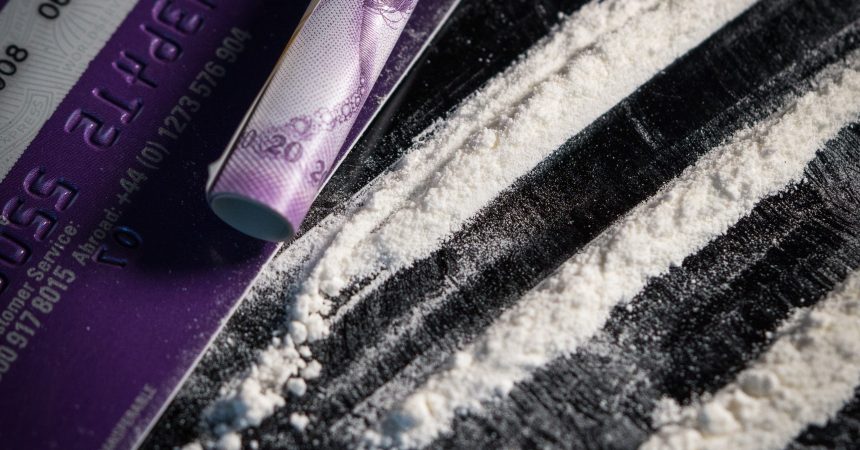Cocaine is a powerful stimulant drug that is known for its euphoric effects, but it can also have serious negative consequences for users. Cocaine use can lead to addiction, heart problems, and other health issues, and it is illegal in most countries. One question that many people have about cocaine use is how long it stays in the body, specifically in the urine. In this blog post, we’ll explore how long cocaine can stay in your urine and what factors can affect this.
How Cocaine Is Metabolized
Before we dive into how long cocaine can stay in your urine, it’s important to understand how cocaine is metabolized by the body. When cocaine is ingested, it is quickly absorbed into the bloodstream and transported to the brain, where it produces its euphoric effects. However, cocaine is also metabolized by enzymes in the liver, which break it down into various metabolites that can be excreted by the body.
One of the primary metabolites of cocaine is benzoylecgonine, which can be detected in urine samples for an extended period of time after cocaine use. While the half-life of cocaine is relatively short (around 1 hour), the half-life of benzoylecgonine is much longer (around 6 hours). This means that even after the effects of cocaine have worn off, benzoylecgonine can still be present in the body and detected in urine tests.
How Long Does Cocaine Stay in Your Urine?
The length of time that cocaine can be detected in urine depends on several factors, including the amount and frequency of cocaine use, as well as individual differences in metabolism and elimination.
In general, cocaine can be detected in urine for up to 3 days after use. However, in some cases, it can be detected for up to a week or more. This is because the rate at which cocaine is metabolized and eliminated from the body can vary widely between individuals. Factors that can affect this include:
- Frequency of use: Individuals who use cocaine more frequently are likely to have higher levels of benzoylecgonine in their system and may take longer to eliminate it.
- Dose: Higher doses of cocaine can lead to higher levels of benzoylecgonine in the body and may take longer to eliminate.
- Route of administration: The method by which cocaine is ingested can affect how quickly it is metabolized and eliminated from the body. For example, smoking or injecting cocaine can lead to more rapid absorption and elimination compared to snorting or ingesting it orally.
- Individual metabolism: Some people may metabolize cocaine and its metabolites more quickly or slowly than others, which can affect how long it stays in the body.
It’s worth noting that while cocaine can typically only be detected in urine for up to a few days after use, other tests, such as hair or blood tests, can detect cocaine use for much longer periods of time. For example, cocaine can be detected in hair samples for up to 90 days after use, and in blood samples for up to 48 hours after use.
How to Get Cocaine Out of Your System
If you’re concerned about how long cocaine may stay in your urine or you need to pass a drug test, there are some steps you can take to speed up the elimination process. However, it’s important to note that none of these methods are foolproof and may not work for everyone.
1. Hydrate: Drinking plenty of water can help flush out the kidneys and speed up the elimination of cocaine metabolites from the body. However, be careful not to over-hydrate, as this can be dangerous.
2. Exercise: Physical activity can help speed up metabolism and elimination of cocaine metabolites. However, it’s important to avoid strenuous exercise, as this can lead to dehydration and potentially dangerous health consequences.
3. Eat a healthy diet: Eating a healthy, balanced diet can help support the body’s natural detoxification processes and speed up the elimination of cocaine metabolites.
4. Avoid using cocaine: Of course, the best way to ensure that cocaine doesn’t stay in your urine is to avoid using it altogether.
It’s worth noting that there are many products and methods marketed as “detox” or “cleansing” solutions that claim to eliminate drugs from the body quickly. However, these products are often not backed by scientific evidence and may not be effective. In some cases, they can even be dangerous.
Conclusion
In summary, cocaine can typically be detected in urine for up to 3 days after use, but this can vary depending on a variety of factors. If you’re concerned about how long cocaine may stay in your urine or need to pass a drug test, there are steps you can take to speed up the elimination process, such as hydrating, exercising, and eating a healthy diet.
However, the most effective way to ensure that cocaine doesn’t stay in your urine is to avoid using it altogether. If you or someone you know is struggling with cocaine addiction, seeking professional help is crucial for overcoming this dangerous and potentially deadly drug.







